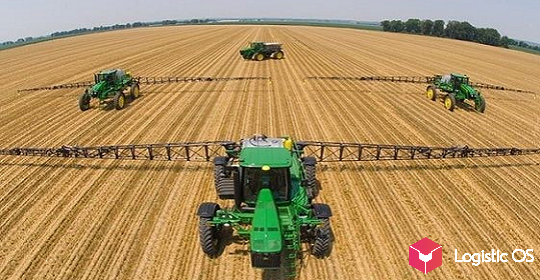According to the latest data, only 13% of graduates from specialized agricultural universities go to work in their specialty, which exacerbates the labor shortage in this area.
The Ministry of Agriculture reports that about 6.4 million people currently work in the Russian agro-industrial complex. However, this number of people is not enough, and this is not news: farmers have been talking about a labor shortage for several years now.
But the situation has not yet been corrected. As noted by the Minister of Agriculture of Russia Oksana Lut, in recent years, instead of an increase in the number of people employed in the agricultural sector, we have to observe an outflow.
According to her, this is due to the fact that in some cases the agricultural sector finds it difficult to provide competitive working conditions. Often, salaries are higher in other areas, and in addition, there are no other factors that are unpleasant for the candidate. For example, the need to move to a rural area.
As a result, the statistics are disappointing: the agricultural sector loses up to 150 thousand employees annually, experts say.
«Mostly not because they went to work elsewhere, but because we have very old teams. There are many people over 60 who may still work until 65, but then they will leave because it is time to rest.
And there are a lot of people over 50. They will also leave in 10-15 years, and we need to replace them,» Lut notes.
Thus, the Russian agricultural complex needs about 150 thousand people per year just to replace those who retire for natural reasons.
In addition, the state has ambitious plans to significantly increase the volume of both agricultural production and exports by 2030.
This means that the industry needs to attract about 100 thousand more people annually to direct them to solve this problem.
One of the most negative news items of recent times was that more than 80% of people who graduated from agricultural universities do not end up working in their specialty. According to the minister, this is an extremely difficult situation that needs to be sorted out as soon as possible.
At the same time, the department is currently implementing a fairly large number of programs aimed at generating interest in working in the agricultural sector among the younger generation.
Moreover, this starts in school: many educational institutions have created agricultural classes that simplify subsequent admission to specialized universities and employment in the agro-industrial complex.
However, the measures already taken are not enough, analysts note.
The agro-industrial complex requires a large number of people with blue-collar jobs, and in addition, the sector needs scientists, since the agro-industrial complex is increasingly becoming a knowledge-intensive industry today.
For this reason, the Ministry of Agriculture and the Ministry of Education and Science should work together to attract specialists to the agricultural sector and train them, experts believe.

